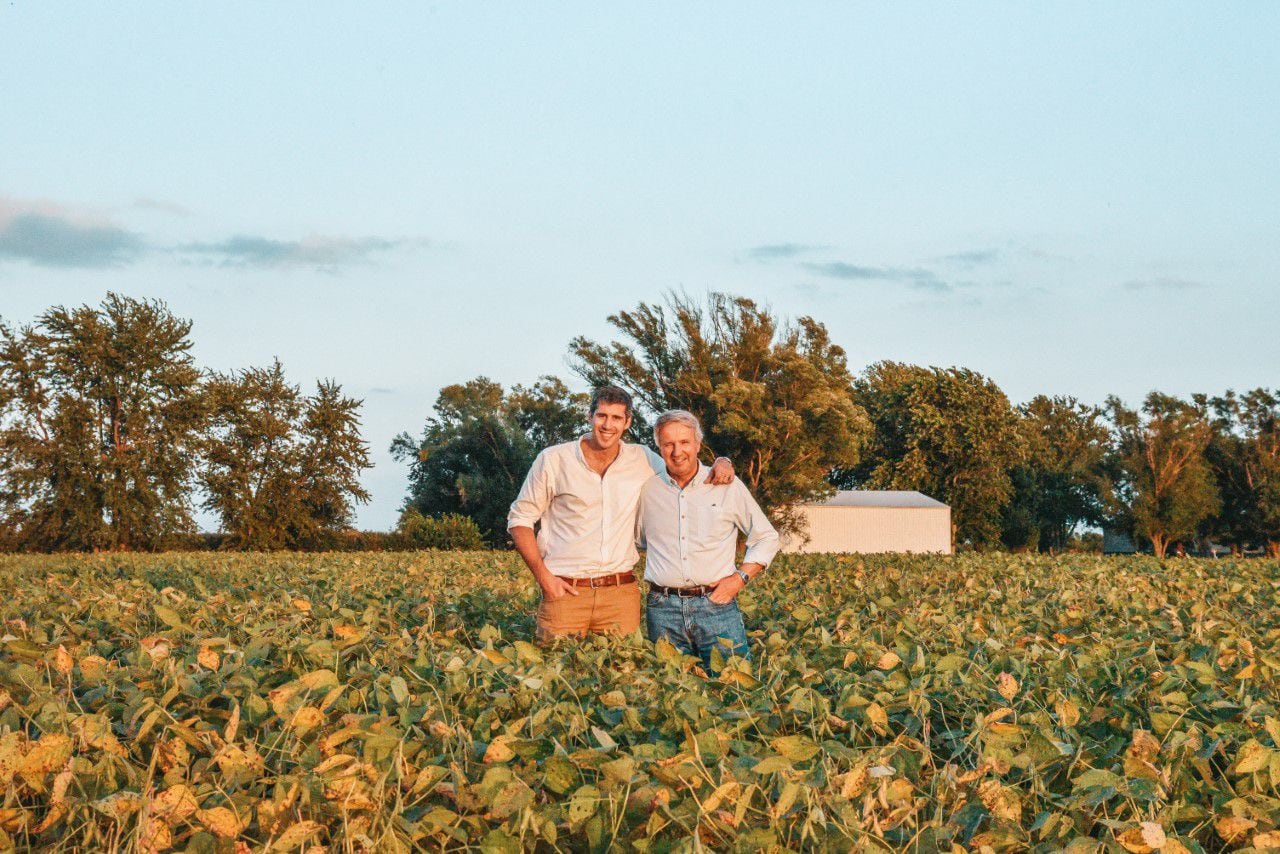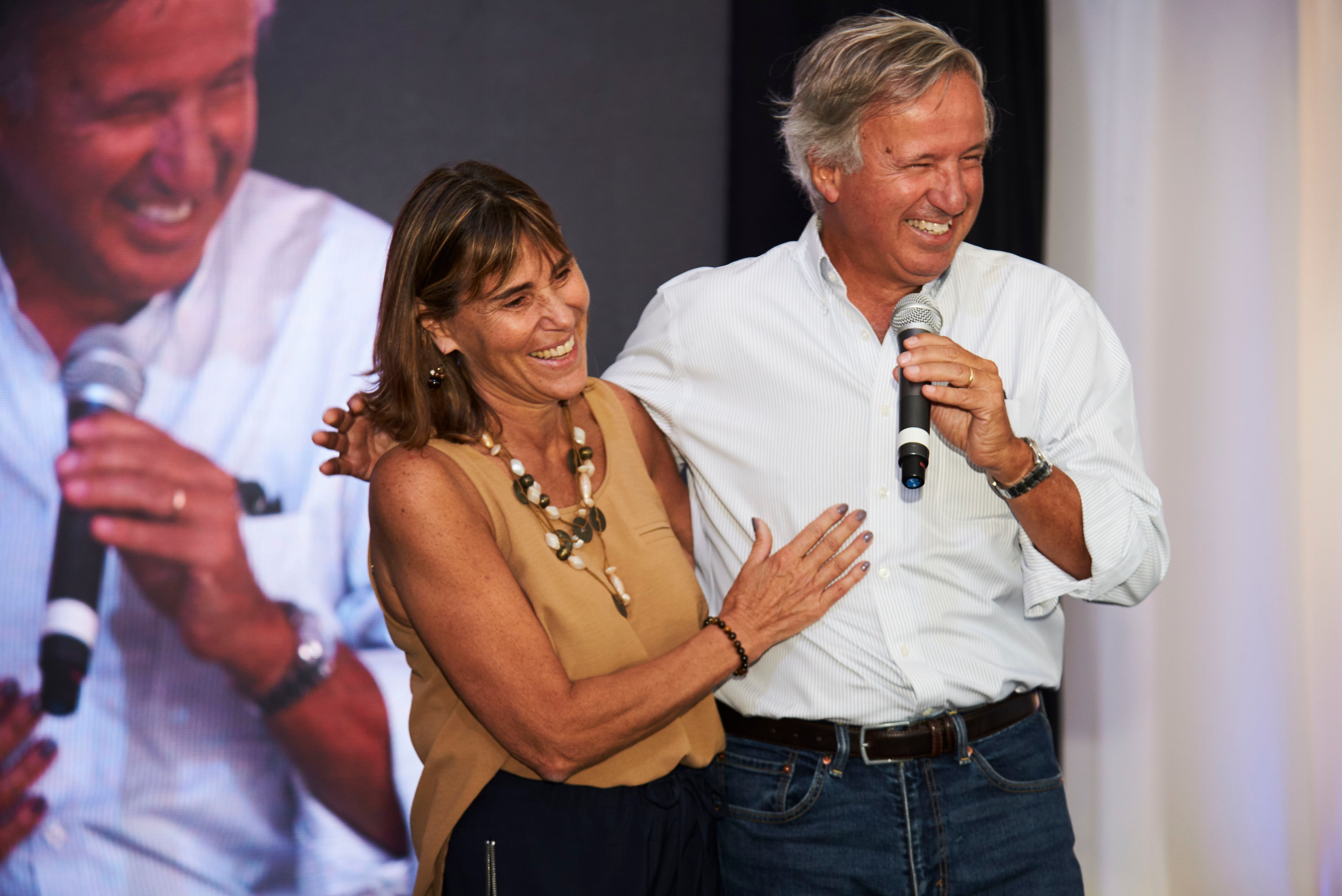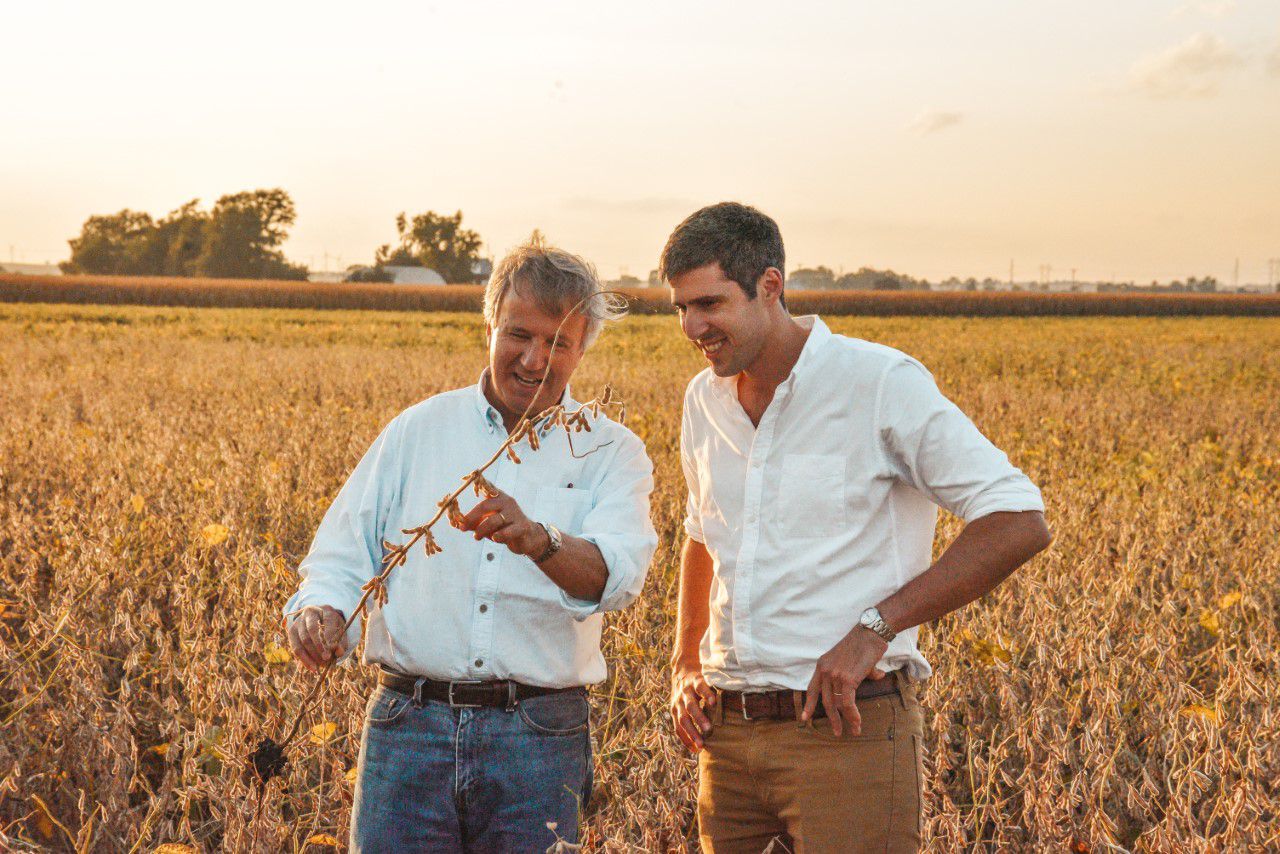
Everyone speaks of him as honest, respectful, humble, low-key, generous, bold and courageous, among other adjectives. This is Gerardo Bartolomé, an entrepreneur who, with values and ethics, held the presidency of the Don Mario Group (GDM) until 31 December. This is the seedbed, installed in the Buenos Aires city of Chacabuco, which locally and globally is the main supplier of soybeans, and also very well positioned in the wheat and corn market. All in the hands of teamwork and high investment in research and development.
Last Thursday at the company's headquarters, Gerardo Bartolomé had his well-deserved tribute, surrounded by family, friends and all those who contributed to the construction of this story that should be an example for the very complex times that the country is going through.
After Gerardo's time as a benchmark for the Don Mario Group, today this space is occupied by his son, Ignacio Bartolomé, who, in addition to having significant training, has a strong imprint on the development of new businesses with a focus on the development of new digital technologies for agriculture. It also ensures the continuity of GDM's values that distinguish it so much in the market, and which has allowed it to position itself as an innovative group with a strong footprint supported by science and technology at the behest of Gerardo. Among some of the innovations that the company is introducing in the sector, gene editing can be highlighted.
Globally, the Group employs more than 1,000 people worldwide, of which 50 per cent are in the research and development departments. In addition, it has 16 breeding stations and more than 700 locations for testing and evaluation of varieties. All objectives that were met and where Gerardo Bartolomé was important to lead the transformation of the company.
Gerardo Bartolomé was born in Buenos Aires in 1956. He is married to Marcela and is the father of 5 children. In 1980 he graduated as an Agricultural Engineer from the University of Buenos Aires. Since then, he has always been linked to the agricultural sector. In 1982 he founded Asociados Don Mario together with four other partners. The essence of Don Mario since its inception was innovation, genetics and applied agronomy. The word “research” was key to the origin and projection of the company, since it was born out of the desire of its founders to investigate a crop that is still quite unknown in these latitudes. Soybeans then occupied about 1,000,000 hectares, nothing compared to about 17 million today.

One of the people responsible for the founding of Don Mario was César Belloso, a well-known agricultural producer of Pergamino and one of the pioneers of the Argentine Association of Producers in Direct Sowing (AAPRESID). They were faculty mates with Bartolomé and the first job they took was planting a 50-hectare lot in Chacabuco, which Belloso's mother lent them to do the first trials. A third agronomist, Daniel Canova, joined there. José Moya and Leo Butler were also important in that first stage.
The key to success was to find a genetics that worked very well in Argentina, where until that time Grupo V seed was abundant. Young agronomists began to import varieties from Groups IV, which are earlier, and with many health and productive qualities. The first variety was recorded in 1988 and in the mid-90s they began to carry out their own trials.
This task began because of the great agronomic uncertainty surrounding soy. This is how Gerardo Bartolomé defined the work of the Don Mario Group as specialists in soy breeding, which led to the development of a work team with the same passion as the founders. José Moya himself, in a video that was presented this week at Gerardo's farewell, defined him as “a person with a great capacity for work and to assemble teams”. For many, the legacy left by Bartholomew is a model of how the idea of a positive leader who has a vision of expanding into the world and the ability to lead the company, but also to maintain his relationship with family and affection.
This quest to expand the world is demonstrated in what happened in 1986, when in the United States Bruce Bailley received a letter from Gerardo himself. “It was a bond based on trust and that later became a friendship,” said Bailley, who after receiving that note sent to Argentina soy varieties that were later a success. “I highlight from him, his work ethic, his commitment to the business and his ability to motivate people to be better than they thought they were,” he added.
expansion
At the beginning of this millennium, Don Mario began a strong period of territorial expansion, first settling in Uruguay and Paraguay and starting an improvement program in Brazil in 2003. To make all these global movements it was renamed GDM.
In Brazil it introduced short maturity groups of indeterminate habit, which did not exist in that territory. In those years, Brazil experienced a great change in the use of genetic resources for the development of varieties, from habit-specific crops of long maturity groups to crops of indeterminate habit of shorter maturity groups, first in southern Brazil and more recently in the Brazilian Cerrado. This led to a marked increase in yields and a wider window for planting.

This shortening of maturity groups also allowed areas for maize safrinha to grow considerably (corn sown after early soybeans). In this way, Bartholomew also generated a very important contribution to the agronomy of soybean cultivation in Brazil. This, complemented by other trends, generated what later became known as the summer double crop.
Since 2007, GDM has established its own breeding program also in the United States, which today has 4 breeding stations and offers the competitive US market the 5 technologies available in the different maturity groups used in that country. The group is also present in Europe with operations in Ukraine and Russia, and is currently looking to Hungary to establish a new experimental station and thus begin to develop a breeding program for other legumes driven by the growing trend of replacing animal meat with vegetable protein.
Bartholomew's gaze, focusing on new trends, understanding them, understanding challenges and proposing solutions from agronomy, allowed GDM to position its genetics in a third of world soy production. So in 2019 the company landed its genetics in China. To date, the trials carried out have yielded excellent results and the company is now moving towards a phase of commercial registrations to eventually launch genetics in that market.
The contribution to academics
Throughout these almost 40 years in the sector, Gerardo Bartolomé was also Assistant in Practical Work in the Chair of Industrial Crops at the University of Buenos Aires. He has also been Coordinator of Soy Cultivar Trials at AACREA and President of the Argentine Association for the Protection of New Varieties of Plants (ARPOV).

GDM, thanks to the imprint that Bartholomew placed on it from his leadership, has always had an important link with the academic sector with a view to channeling innovation generated in academia and real business, and at the same time promoting the training of people through these links. This imprint of collaboration with the academic sector was also transferred to other countries where GDM has operations.
The legacy
“The greats don't retire,” commented Obdulio San Martin, who since 1990 worked alongside Gerardo in Don Mario and until a few years ago he worked as Operational Director General Latam Sur. He was also a central player in the company's growth and positioning. “In life you end up remembering that person's spirit, what he did and left,” he added.
Antonio Aracre, CEO of Syngenta, in this week's tribute considered that the best legacy left by Gerardo is Ignacio, his son. “After having built a company like Don Mario where the company and the entrepreneur are confused in the person of its founder, Gerardo Bartolomé. And having the ability to plan, execute the transition plan between Gerardo and his son, is proof that when the continuity of the company and its future are privileged above all over issues that often have to do with the ego, that company duels find it difficult to retrace”, he said.
The legacy, above all, is to continue on the same path, where the value of teamwork and honesty are the premises. An example to be imitated by many, in times when Argentina needs many Gerardo Bartolomé.
KEEP READING:
Últimas Noticias
Debanhi Escobar: they secured the motel where she was found lifeless in a cistern

The oldest person in the world died at the age of 119

Macabre find in CDMX: they left a body bagged and tied in a taxi
The eagles of America will face Manchester City in a duel of legends. Here are the details

Why is it good to bring dogs out to know the world when they are puppies




